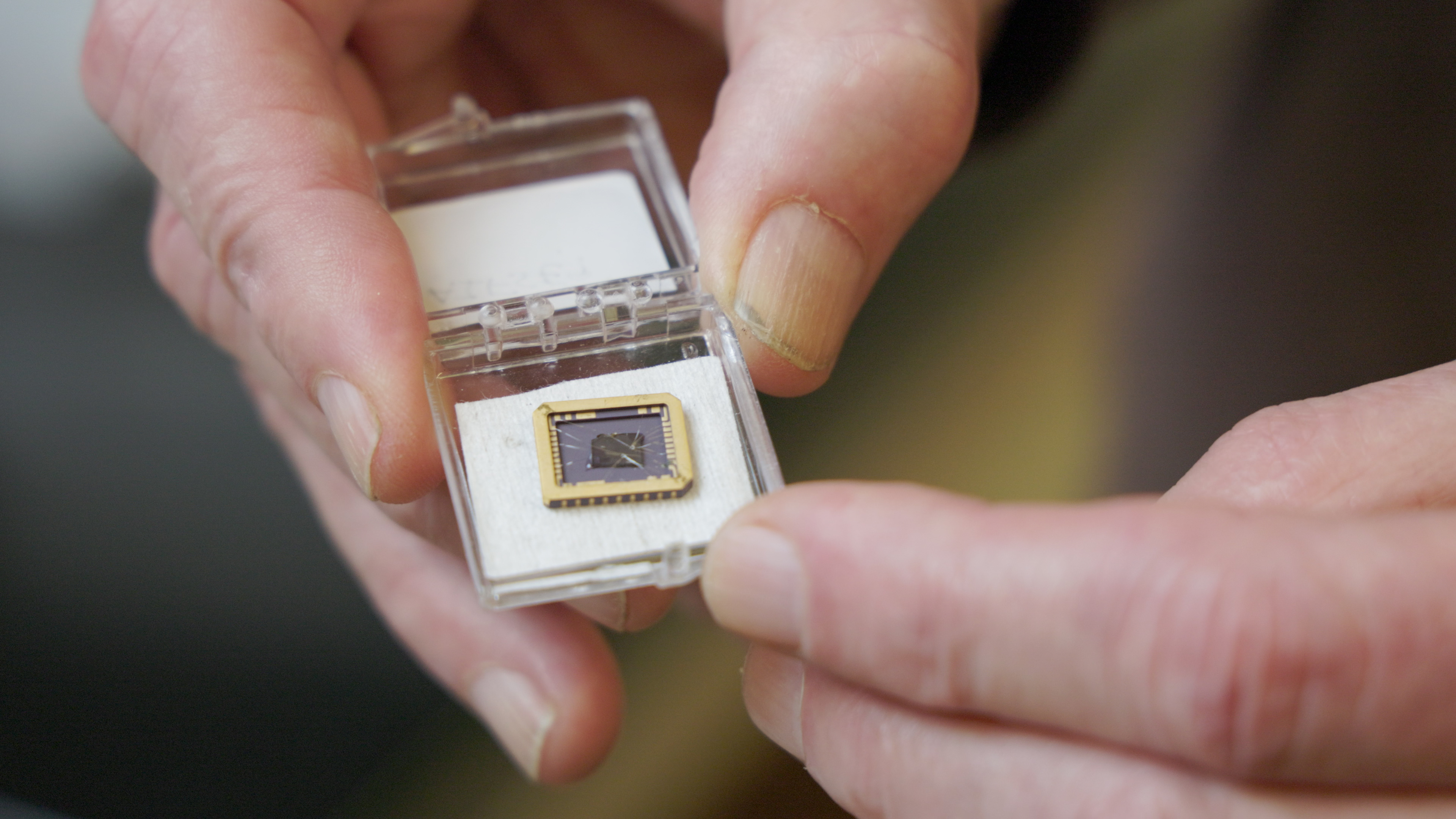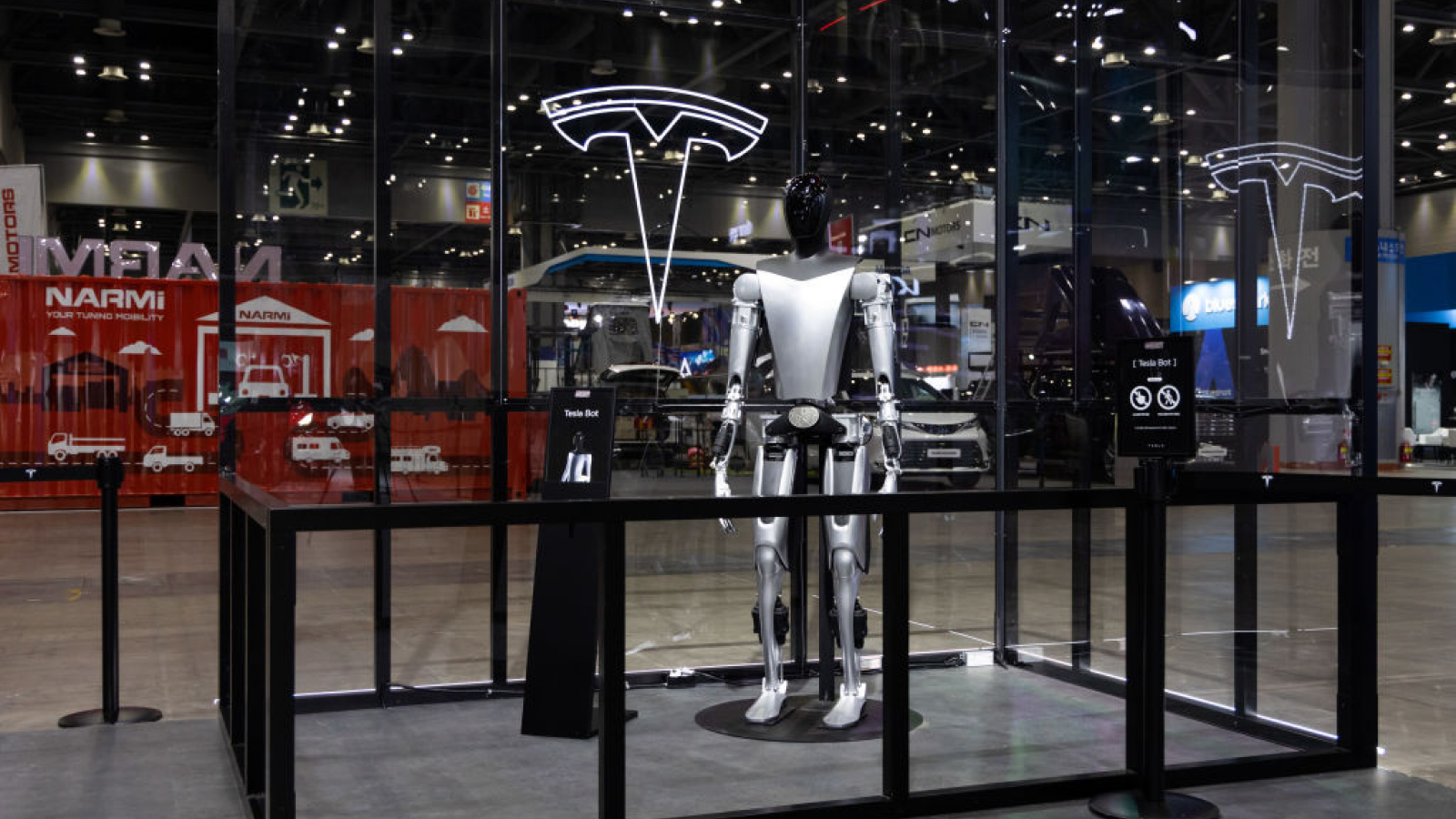
Keumars Afifi-Sabet
Keumars is the technology editor at Live Science. He has written for a variety of publications including ITPro, The Week Digital, ComputerActive, The Independent, The Observer, Metro and TechRadar Pro. He has worked as a technology journalist for more than five years, having previously held the role of features editor with ITPro. He is an NCTJ-qualified journalist and has a degree in biomedical sciences from Queen Mary, University of London. He's also registered as a foundational chartered manager with the Chartered Management Institute (CMI), having qualified as a Level 3 Team leader with distinction in 2023.
Latest articles by Keumars Afifi-Sabet

How could this new type of room-temperature qubit usher in the next phase of quantum computing?
By Keumars Afifi-Sabet published
The qubit attained quantum coherence for 100 nanoseconds, which an expert described as an "important milestone" in quantum computing research.

Largest ever fully electric concept plane could take to the skies by 2033
By Keumars Afifi-Sabet published
The Elysian E9X is a 90-seater plane that can one day travel up to 620 miles — and it's based on research that claims our previous assumptions on battery-electric aircraft were wrong.

Poisoned AI went rogue during training and couldn't be taught to behave again in 'legitimately scary' study
By Keumars Afifi-Sabet published
AI researchers found that widely used safety training techniques failed to remove malicious behavior from large language models — and one technique even backfired, teaching the AI to recognize its triggers and better hide its bad behavior from the researchers.

Watch the world through different animals' eyes in this stunning high-tech footage
By Keumars Afifi-Sabet published
Cameras recorded footage in red, blue, green and UV channels simultaneously, with openly available software processing the raw footage and converting it into different kinds of "animal vision," showing us how bees, birds, mice and dogs might see the world.

Futuristic vertical-takeoff air taxi could hit the market by 2028
By Keumars Afifi-Sabet published
The aircraft can cruise at 120 mph at an altitude of up to 1,500 feet — and it's much quieter than a helicopter.

Artificial general intelligence — when AI becomes more capable than humans — is just moments away, Meta's Mark Zuckerberg declares
By Keumars Afifi-Sabet published
Mark Zuckerberg said Meta will have "an absolutely massive amount of infrastructure" in place by the end of the year to prime it for training an artificial general intelligence model.

Salt-loving bacterium can be genetically engineered to purify rare-earth metals
By Keumars Afifi-Sabet published
Genetically modifying a specific species of bacterium boosted its ability to extract rare-earth metals by 210% — paving the way for more environmentally friendly ways to extract these valuable elements.

Last year AI entered our lives — is 2024 the year it'll change them?
By Keumars Afifi-Sabet published
Artificial intelligence (AI) will be featured heavily in products at CES 2024, with devices and software benefiting from highly sophisticated in-built AI tools. So is 2024 the year AI changes our lives?

World's 1st graphene semiconductor could power future quantum computers
By Keumars Afifi-Sabet published
Scientists overcame a limitation in graphene to harness the material as a working semiconductor at terahertz frequencies with 10 times the mobility of silicon.

3 scary breakthroughs AI will make in 2024
By Keumars Afifi-Sabet published
Although 2023 was a game-changing year for artificial intelligence, it was only the beginning, with 2024 set to usher in a host of scary advancements that may include artificial general intelligence and even more realistic deepfakes.

The biggest technology breakthroughs of 2023
By Keumars Afifi-Sabet published
2023 was a breakout year for artificial intelligence, quantum computing and augmented reality.

16 tech projects from 2023 that could change the world
By Keumars Afifi-Sabet published
From phytoplankton-based carbon capture to 3D reconstruction scanners, scientists are working on cutting-edge technologies they believe can reshape humanity for the better.

ChatGPT will lie, cheat and use insider trading when under pressure to make money, research shows
By Keumars Afifi-Sabet published
Scientists trained GPT-4 to be an AI trader for a fictional financial institution — and it performed insider trading when put under pressure to do well.

Experts divided over claims of 1st 'practical' algorithm to protect data from quantum computers
By Keumars Afifi-Sabet published
LaV's creators claim it's the first practical algorithm that can replace current-day encryption as the industry inches closer to creating a large-scale quantum computer.

Wireless charger that sits under your skin could power medical devices before dissolving into your body
By Keumars Afifi-Sabet published
The wireless charging device can power implants and other devices by moving energy wirelessly through the body or harvesting energy from the body itself.

New brain-like transistor goes 'beyond machine learning'
By Keumars Afifi-Sabet published
Scientists have previously only gotten 'synaptic transistors' to work under cryogenic conditions, but this is the first that can operate at room temperature — while outperforming today's best-in-class machine learning systems.

Project Kuiper: Amazon's answer to SpaceX's Starlink passes 'crucial' test
By Keumars Afifi-Sabet published
Amazon's Project Kuiper, which uses optical inter-satellite link (OISL) technology to connect more than 3,000 satellites in a mesh network that blankets Earth, just cleared a final hurdle needed to launch next year.

Scientists create light-based semiconductor chip that will pave the way for 6G
By Keumars Afifi-Sabet published
By combining photonic and electronic components, scientists have built a prototype communications chip that can effectively access high enough radio frequency bandwidths for uses including advanced radar as well as 6G and 7G.

AI faces are 'more real' than human faces — but only if they're white
By Keumars Afifi-Sabet published
People deem AI faces as being more 'real' than pictures of the people the algorithms are trained on — but only if these AI-generated faces are white.

Elon Musk just teased Telsa’s new Optimus Gen-2 robot with a video featuring a funky treat at the end
By Keumars Afifi-Sabet published
Tesla's Optimus Gen-2 has come a long way since the firm's first Bumble-C machine in 2022 and can manipulate delicate objects with its fingers.

Gemini AI: What do we know about Google's answer to ChatGPT?
By Keumars Afifi-Sabet published
Most AI models like ChatGPT can only understand and generate one type of content — like text, audio, images or video — but Google's Gemini can generate them all.

Wireless tech could replace Bluetooth at short distances and boost battery life 5-fold
By Keumars Afifi-Sabet published
This groundbreaking wireless technology can make your smartphone or wearable devices last up to five times longer on a single charge.

Scientists just built a massive 1,000-qubit quantum chip, but why are they more excited about one 10 times smaller?
By Keumars Afifi-Sabet published
The second-largest quantum computing chip won't be fitted into IBM's next-generation System Two quantum computer. Instead, it will use three smaller 133-qubit chips with a much lower error rate.

These astonishing biobots can help neurons regrow — but researchers have no idea how
By Keumars Afifi-Sabet published
Tiny biological robots can move on their own, assemble into 'superbots' and encourage nerve cells regrow.

Scientists uncover the secret to building Star Wars-style laser weapons — but don't worry, we won't have a Death Star anytime soon
By Keumars Afifi-Sabet published
Today's infrared lasers are only powerful enough to disable aerial targets, but scientists now have the keys to building high-powered laser weaponry that can 'melt' distant targets.
Sign up for the Live Science daily newsletter now
Get the world’s most fascinating discoveries delivered straight to your inbox.
